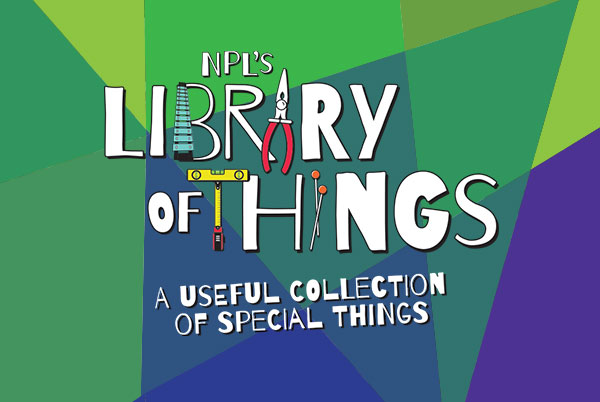
The Biter Bit
This story can be found in Andrew Lang’s Green Fairy Book.
Hello, and welcome to Family Folktales from the Nashville Public Library. I’m Susan Poulter, a Librarian at the Main Library. Today’s story is The Biter Bit from Andrew Lang’s Green Fairy Book.
Once upon a time there lived a man called Simon, who was very rich, but at the same time as stingy and miserly as he could be. He had a housekeeper called Nina, a clever capable woman, and as she did her work carefully and conscientiously, her master had the greatest respect for her.
In his young days Simon had been one of the gayest and most active youths of the neighbourhood, but as he grew old and stiff he found it very difficult to walk, and his faithful servant urged him to get a horse so as to save his poor old bones. At last Simon gave way to the request and persuasive eloquence of his housekeeper, and betook himself one day to the market where he had seen a mule, which he thought would just suit him, and which he bought for seven gold pieces.
Now it happened that there were three merry rascals hanging about the market-place, who much preferred living on other people's goods to working for their own living. As soon as they saw that Simon had bought a mule, one of them said to his two boon companions, 'My friends, this mule must be ours before we are many hours older.'
'But how shall we manage it,' asked one of them.
'We must all three station ourselves at different intervals along the old man's homeward way, and must each in his turn declare that the mule he has bought is a donkey. If we only stick to it you'll see the mule will soon be ours.' This proposal quite satisfied the others, and they all separated as they had agreed.
Now when Simon came by, the first rogue said to him, 'God bless you, my fine gentleman.'
'Thanks for your courtesy,' replied Simon.
'Where have you been?' asked the thief.
'To the market,' was the reply.
'And what did you buy there?' continued the rogue.
'This mule.'
'Which mule?'
'The one I'm sitting upon, to be sure,' replied Simon.
'Are you in earnest, or only joking?'
'What do you mean?'
'Because it seems to me you've got hold of a donkey, and not of a mule.'
'A donkey? Rubbish!' screamed Simon, and without another word he rode on his way. After a few hundred yards he met the second confederate, who addressed him, 'Good day, dear sir, where are you coming from?'
'From the market,' answered Simon.
'Did things go pretty cheap?' asked the other.
'I should just think so,' said Simon.
'And did you make any good bargain yourself?'
'I bought this mule on which you see me.'
'Is it possible that you really bought that beast for a mule?'
'Why certainly.'
'But, good heavens, it's nothing but a donkey!'
'A donkey!' repeated Simon, 'you don't mean to say so; if a single other person tells me that, I'll make him a present of the wretched animal.'
With these words he continued his way, and very soon met the third knave, who said to him, 'God bless you, sir; are you by any chance coming from the market?'
'Yes, I am,' replied Simon.
'And what bargain did you drive there?' asked the cunning fellow.
'I bought this mule on which I am riding.'
'A mule! Are you speaking seriously, or do you wish to make a fool of me?'
'I'm speaking in sober earnest,' said Simon; 'it wouldn't occur to me to make a joke of it.'
'Oh, my poor friend,' cried the rascal, 'don't you see that is a donkey and not a mule? you have been taken in by some wretched cheats.'
'You are the third person in the last two hours who has told me the same thing,' said Simon, 'but I couldn't believe it,' and dismounting from the mule he spoke: 'Keep the animal, I make you a present of it.' The rascal took the beast, thanked him kindly, and rode on to join his comrades, while Simon continued his journey on foot.
As soon as the old man got home, he told his housekeeper that he had bought a beast under the belief that it was a mule, but that it had turned out to be a donkey--at least, so he had been assured by several people he had met on the road, and that in disgust he had at last given it away.
'Oh, you simpleton!' cried Nina; 'didn't you see that they were only playing you a trick? Really, I thought you'd have had more gumption than that; they wouldn't have taken me in in that way.'
'Never mind,' replied Simon, 'I'll play them one worth two of that; for depend upon it they won't be contented with having got the donkey out of me, but they'll try by some new dodge to get something more, or I'm much mistaken.'
Now there lived in the village not far from Simon's house, a peasant who had two goats, so alike in every respect that it was impossible to distinguish one from the other. Simon bought them both, paid as small a price as he could for them, and leading them home with him, he told Nina to prepare a good meal, as he was going to invite some friends to dinner. He ordered her to roast some veal, and to boil a pair of chickens, and gave her some herbs to make a good savoury, and told her to bake the best tart she could make. Then he took one of the goats and tied it to a post in the courtyard, and gave it some grass to eat; but he bound a cord round the neck of the other goat and led it to the market.
Hardly had he arrived there, than the three gentlemen who had got his mule perceived him, and coming up to him said: 'Welcome, Mr. Simon, what brings you here; are you on the look out for a bargain?'
'I've come to get some provisions,' he answered, 'because some friends are coming to dine with me today, and it would give me much pleasure if you were to honour me with your company also.'
The accomplices willingly accepted this invitation; and after Simon had made all his purchases, he tied them on to the goat's back, and said to it, in the presence of the three cheats, 'Go home now, and tell Nina to roast the veal, and boil the chickens, and tell her to prepare a savoury with herbs, and to bake the best tart she can make. Have you followed me? Then go, and Heaven's blessing go with you.'
As soon as it felt itself free, the laden goat trotted off as quickly as it could, and to this day nobody knows what became of it. But Simon, after wandering about the market for some time with his three friends and some others he had picked up, returned home to his house.
When he and his guests entered the courtyard, they noticed the goat tied to the post quietly chewing the cud. They were not a little astonished at this, for of course they thought it was the same goat that Simon had sent home laden with provisions. As soon as they reached the house Mr. Simon said to his housekeeper, 'Well, Nina, have you done what I told the goat to tell you to do?' The artful woman, who at once understood her master, answered, 'Certainly I have. The veal is roasted, and the chickens boiled.'
'That's all right,' said Simon.
When the three rogues saw the cooked meats, and the tart in the oven, and heard Nina's words, they were nearly beside themselves with amazement, and began to consult at once how they were to get the goat into their own possession. At last, towards the end of the meal, having sought in vain for some cunning dodge to get the goat away from Mr. Simon, one of them said to him, 'My worthy host, you must sell your goat to us.'
Simon replied that he was most unwilling to part with the creature, as no amount of money would make up to him for its loss; still, if they were quite set on it, he would let them have the goat for fifty gold pieces.
The knaves, who thought they were doing a capital piece of business, paid down the fifty gold pieces at once, and left the house quite happily, leading the goat with them. When they got home they said to their wives, 'You needn't begin to cook the dinner to-morrow till we send the provisions home.'
The following day they went to the market and bought chickens and other eatables, and after they had packed them on the back of the goat (which they had brought with them), they told it all the dishes they wished their wives to prepare. As soon as the goat felt itself free, it ran as quickly as it could, and was very soon lost to sight, and, as far as I know, was never heard of again.
When the dinner hour approached all three went home and asked their wives if the goat had returned with the necessary provisions, and had told them what they wished prepared for their meal.
'Oh, you fools and blockheads!' cried their wives, 'how could you ever believe for a moment that a goat would do the work of a servant-maid? You have been finely deceived for once in a way. Of course, if you are always taking in other people, your turn to be taken in comes too, and this time you've been made to look pretty foolish.'
When the three comrades saw that Mr. Simon had got the better of them, and done them out of fifty gold pieces, they flew into such a rage that they made up their minds to kill him, and, seizing their weapons for this purpose, went to his house.
But the sly old man, who was terrified for his life that the three rogues might do him some harm, was on his guard, and said to his housekeeper, 'Nina, take this bladder, which is filled with blood, and hide it under your cloak; then when these thieves come I'll lay all the blame on you, and will pretend to be so angry with you that I will run at you with my knife, and pierce the bladder with it; then you must fall on the ground as if you were dead, and leave the rest to me.'
Hardly had Simon said these words when the three rogues appeared and fell on him to kill him.
'My friends,' called out Simon to then, 'what do you accuse me of? I am in no way to blame; perhaps my housekeeper has done you some injury of which I know nothing.' And with these words, he turned on Nina with his knife, and stuck it right into her, so that he pierced the bladder filled with blood. Instantly the housekeeper fell down as if she were dead, and the blood streamed all over the ground.
Simon then pretended to be seized with remorse at the sight of this dreadful catastrophe, and cried out in a loud voice, 'Unhappy wretch that I am! What have I done? Like a madman I have killed the woman who is the prop and stay of my old age. How could I ever go on living without her?' Then he seized a pipe, and when he had blown into it for some time Nina sprang up alive and well.
The rogues were more amazed than ever; they forgot their anger, and buying the pipe for two hundred gold pieces, they went joyfully home.
Not long after this one of them quarrelled with his wife, and in his rage he thrust his knife into her breast so that she fell dead on the ground. Then he took Simon's pipe and blew into it with all his might, in the hopes of calling his wife back to life. But he blew in vain, for the poor soul was as dead as a door-nail.
When one of his comrades heard what had happened, he said, 'You blockhead, you can't have done it properly; just let me have a try,' and with these words he seized his wife by the roots of her hair, cut her throat with a razor, and then took the pipe and blew into it with all his might but he couldn't bring her back to life. The same thing happened to the third rogue, so that they were now all three without wives.
Full of wrath they ran to Simon's house, and, refusing to listen to a word of explanation or excuse, they seized the old man and put him into a sack, meaning to drown him in the neighbouring river. On their way there, however, a sudden noise threw them into such a panic that they dropped the sack with Simon in it and ran for their lives.
Soon after this a shepherd happened to pass by with his flock, and while he was slowly following the sheep, who paused here and there by the wayside to browse on the tender grass, he heard a pitiful voice wailing, 'They insist on my taking her, and I don't want her, for I am too old, and I really can't have her.' The shepherd was much startled, for he couldn't make out where these words, which were repeated more than once, came from, and looked about him to the right and left; at last he perceived the sack in which Simon was hidden, and going up to it he opened it and discovered Simon repeating his dismal complaint. The shepherd asked him why he had been left there tied up in a sack.
Simon replied that the king of the country had insisted on giving him one of his daughters as a wife, but that he had refused the honour because he was too old and too frail. The simple-minded shepherd, who believed his story implicitly, asked him, 'Do you think the king of the country would give his daughter to me?'
'Yes, certainly, I know he would,' answered Simon, 'if you were tied up in this sack instead of me.' Then getting out of the sack, he tied the confiding shepherd up in it instead, and at his request fastened it securely and drove the sheep on himself.
An hour had scarcely passed when the three rogues returned to the place where they had left Simon in the sack, and without opening it, one of them seized it and threw it into the river. And so the poor shepherd was drowned instead of Mr. Simon!
The three rogues, having wreaked their vengeance, set out, for home. On their way they noticed a flock of sheep grazing not far from the road. They longed to steal a few of the lambs, and approached the flock, and were more than startled to recognise Mr. Simon, whom they had drowned in the river, as the shepherd who was looking after the sheep. They asked him how he had managed to get out of the river, to which he replied, 'Get along with you--you are no better than silly donkeys without any sense; if you had only drowned me in deeper water I would have returned with three times as many sheep.'
When the three rogues heard this, they said to him: 'Oh, dear Mr. Simon, do us the favour to tie us up in sacks and throw us into the river that we may give up our thieving ways and become the owners of flocks.'
'I am ready,' answered Simon, 'to do what you please; there's nothing in the world I wouldn't do for you.'
So he took three strong sacks and put a man in each of them, and fastened them up so tightly that they couldn't get out, and then he threw them all into the river; and that was the end of the three rogues. But Mr. Simon returned home to his faithful Nina rich in flocks and gold, and lived for many a year in health and happiness.
That was The Biter Bit from Andrew Lang’s Green Fairy Book. Special thanks to Ginger Sands for our theme music; you can find more of Ginger’s music at iTunes or on her website at www.Gingersands.com. And if you’d like to comment on today’s story, send me an email. I can be reached at susan.poulter@nashville.gov. Thanks for listening.




